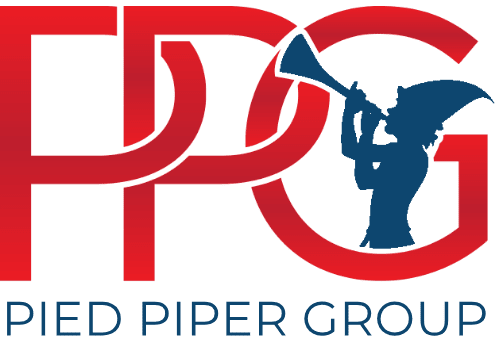
The first-time home-buying process can seem overwhelming when you’re confused between buying and renting. It is important to determine whether you’re ready for homeownership or not before taking on the obligation of a mortgage. Homeownership comes with numerous responsibilities, even if you avail of the first-time home buyer tax credit through state-run programs.
In contrast, renting a home or apartment offers financial freedom and the luxury to relocate whenever you please. However, rent is akin to dead money, while a mortgage builds equity and facilitates ownership. Yearning for a home of your own is not a good enough reason to accumulate debt unless you have the discipline and financial stability to pay off your mortgage.
Choosing the right-first-time home buyer mortgage product can ensure flexibility, supporting easy debt management to help you build home equity. Fall 2022 has witnessed stability returning to the housing market, but interest rates continue to surge due to the recession. Managing homeownership becomes easier when you can afford a mortgage with financial and income stability.
Read on to explore some crucial considerations to help you determine if you’re ready for homeownership.
Table of Contents
6 Considerations for First-Time Homebuyers
- Do you want to pay rent or build equity?
- Do you have a solid credit score?
- Are you overwhelmed by debt?
- Can you afford a sizable down payment?
- Can you afford property maintenance and upkeep?
- Do you have a healthy and stable lifestyle?
Do you want to pay rent or build equity?
Is your rent steadily increasing? Are you alarmed by the heightened rent increments and seeking avenues to build equity instead of wasting money on rent? You’re not alone, because the mortgage is always a more efficient alternative to paying rent.
As rents continue to increase, our monthly budgets become constricted, making it challenging for us to support our financial and investment goals. On the other hand, when you convert rent into a mortgage, a fruitless investment suddenly becomes a lucrative one, allowing you to build equity and financial security. Exploring mortgage loans with a flexible payment plan similar to your rental payment is a wiser choice, especially if the rental rates in your neighborhood are rising alarmingly.
Financially stable tenants are strongly advised to look into mortgage solutions and first-time home buyer credits to secure their future. However, if you’re not financially stable, don’t let the pride of homeownership push you toward debt accumulation.

Do you have a solid credit score?
Improving your credit score is one of the most important first-time home buyer rules to shop for the best interest rates for a flexible mortgage plan. Most tenants fail to actualize their homeownership dream because they do not meet the mortgage eligibility requirements. A solid credit score will boost your application by indicating a healthy debt management ethic and financial stability.
Lenders scrutinize credit scores and reports to evaluate the borrower’s ability to pay off the debt and conduct a risk assessment. If you don’t have a healthy credit score, you are not ready for homeownership and must work toward improving your ranking. Borrowers with low credit scores, such as 500, can obtain some mortgage products but these loans come with hefty down payments and high-interest rates.
If you want to shop for a good deal with convenient loan terms and low-interest rates, improving your credit score is crucial. However, this process will take time as you need to work on reducing your debt and ending unnecessary lines of credit. Consider credit counseling if you’re struggling to overcome this obstacle.
You can begin by requesting a copy of your credit report from credit bureaus and reflecting on your spending and debt accumulation patterns.

Are you overwhelmed by debt?
Taking on more debt when you’re already overwhelmed by credit and liabilities is one of the most damaging first-time home buyer mistakes. Lenders evaluate applications by assessing the applicant’s debt-to-income ratio (DTI) and measuring their debt against their monthly income. Applicants with a high DTI ratio are considered risky investments, and for good reason.
Having said that, there are home loans and mortgage vehicles designed for borrowers with high DTI ratios. But taking out a hefty home loan when you’re still paying off your student debt, auto loan or credit card bills is a terrible mistake. Instead, consider adopting a step-by-step approach to pay off your existing debt and credit balance, and apply for a mortgage with a stronger financial position.
The trick is to regulate and reduce your debt and avoid using your credit card for expenses unless you absolutely have to use it.

Can you afford a sizable down payment?
One of the most common first-home buyer Reddit conversations revolves around down payments and how much homebuyers should put forward for a flexible repayment plan. It is important to note that unlike second-time homebuyers, landlords and investors, first-time home buyers do not have a rental income or proceeds to fund their down payment. Therefore, they primarily rely on their savings.
An insufficient down payment is typically the biggest obstacle to homeownership and qualifying for a market-competitive mortgage plan with low-interest rates. Once you clear this obstacle with at least a 20% down payment, you can explore a variety of borrower-centric mortgage plans that combine affordability and flexibility.
Besides, first-time home buyer tax advantages provide financial relief to facilitate homeownership. You can explore a multitude of mortgage solutions with as low as a 3-5% down payment, but it is wise to save more and put your nest egg toward building equity. We advise potential buyers to focus on increasing their down payment and comparing multiple loan products.
Focusing solely on mortgage plans suitable for borrowers with low down payments is viable but not more lucrative than putting forward a sizable down payment to shop low-interest rates. The financial market is brimming with a multitude of mortgage products designed for various borrower profiles. But remember, the expenses don’t end at down payment and mortgage payments. You also need to consider closing costs, attorney fees, realtor’s commission, and other expenses.

Can you afford property maintenance and upkeep?
Landlords are liable to pay for all maintenance and repair costs, from kitchen leakages and plumbing issues to electric repairs and water damage concerns. But when you acquire your own home, the expense of maintaining and repairing your property is also yours. You must prioritize property maintenance and repairs to preserve your asset and prevent minor issues from blowing up into glaring defects.
Then, you will also be liable to pay homeowner’s insurance, property taxes, and homeowner’s association fees (if applicable. Homebuyers with a steady income can save enough money to manage repair and maintenance expenses while potential buyers who are constantly changing jobs and struggling with income insecurity should avoid taking the leap.
Suppose you have put your entire life’s savings toward the down payment and intend to manage monthly payments in place of the rent you are paying. In that case, you will have no money left to handle repairs and routine maintenance. Well, repairs do come up, even with newly constructed properties and pristinely maintained homes.
Experts believe that if such a situation arises, it is better to spend less on the property and set aside an emergency fund to manage property maintenance. However, it is wiser to achieve income and job stability before taking the homeownership plunge.
Typically, routine maintenance costs and repairs can amount to around $3,000 a year. If you need to install a new HVAC system or replace the existing roofing structure, you will need at least $20,000. Electric and plumbing repairs don’t cost much if addressed timely, but if ignored, they threaten to inflict severe property damage, resulting in costly repairs.
It is important to assess your ability to manage these expenses before getting embroiled in a situation that forces you to sell off.

Do you have a healthy and stable lifestyle?
Most people are motivated to work toward the homeownership dream after significant life events, such as marriage, having a child, or having a second child. The desire for homeownership is fueled by multiple catalysts, such as income stability, the need for space, a growing family, job stability, or even the desire to get married and settled.
It is important to reflect on your core desires and find neighborhoods and residential markets best suited to your needs and financial health. For instance, suppose you want to buy a home before bringing a second child into your family. In that case, it is wise to relocate to an affordable neighborhood with a reputable school district to manage mortgage and living expenses with ease.
Having a healthy and stable lifestyle is of the utmost significance to ensure you are fully capable of paying off your home loan. It is important to note that homeownership comes with a plethora of upfront and hidden expenses, and paying off these liabilities will take several years. If you expect yourself to relocate before paying off these liabilities and recovering your investment, it is wise to abandon your homeownership plan and invest in other financial vehicles.
Very few people spend multiple years working for the same organization. However, borrowers must ensure income and job security in order to qualify for a market-competitive mortgage plan. Income and job stability will reduce your risk of defaulting on the loan, allowing you to make timely mortgage payments.
The homeownership journey becomes easier and more manageable when you and your partner are working together to pay off the loan and manage homeownership expenses. Investing in a prized property as a one-income household can prove extremely challenging.

Final Thoughts
It is highly advisable to begin working toward homeownership when you are completely sure about your needs and wants. You need to have a definite plan about the kind of neighborhood or location you wish to invest in, and the kind of home you want to buy. Do you want to invest in a single-family home, an apartment, a townhome, or a duplex?
Each property has its own advantages and downsides, alongside varying costs unique to the property specifications and neighborhood. Before you start shopping for mortgage and interest rates, sit down and reflect on your needs and desires to set priorities.
What is more important to you, a reputable school district or proximity to your workplace? Do you want a large property so you can rent out one floor and establish a passive rental income stream? Do you want luxury amenities, like a stainless steel kitchen, a swimming pool, and a spacious backyard?
Reflecting on these aspects will help you understand your affordability and work toward a convenient and flexible mortgage plan.
Frequently Asked Questions (FAQs)
⦁ Is buying a house a good idea?
It is a highly advisable decision if you enjoy income and job stability, a healthy credit score, and sizable savings to manage the down payment, monthly mortgage payments, and closing costs, alongside property maintenance and repair expenses. However, if you’re struggling with outstanding debt, income insecurity, and adverse life events, it is wise to focus on achieving financial stability first.
⦁ Why shouldn’t I buy a house?
If you are struggling to pay off your student loans and other debt, it is important to reduce your liabilities before taking out a home loan. More importantly, if your credit score is low and your DTI is high, consider improving your financial health before taking up the liability of a home loan.
⦁ What is the best time to buy a home?
Experts believe that winter is the best time to shop for a home and explore the market for competitive mortgage plans with favorable interest rates. However, each state and location has unique market trends and it is important to consult a realtor with extensive local experience to gain valuable insight.
⦁ Should I buy a house by the time I’m 30?
Age is just a number, and should not reflect on your ability to buy a home, a car, or anything really. If you are financially stable and wealthy at 25, go ahead and invest your money in a property that builds equity and wealth. However, if you’re struggling to pay off your student loan at 32, consider waiting till you’re debt-free and ready to tackle a home loan.
